EDUCATION
Archives
Look out for free giveaways inside the articles!
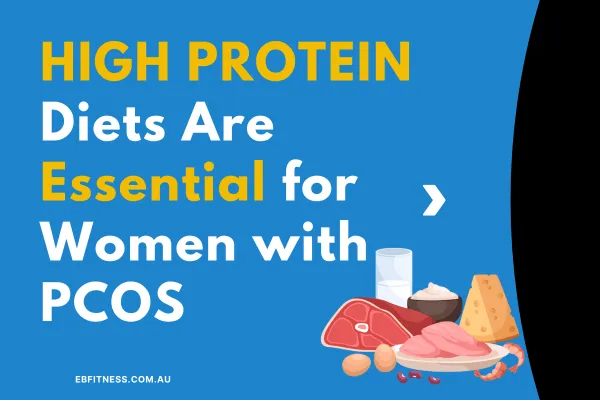
High Protein Diets: Essential for Women with PCOS
“Data suggest that higher-protein diets provide improvements in appetite, body weight management, cardiometabolic risk factors, or all of these health outcomes" — Leidy et al. (2015).”
Why HIGH PROTEIN Diets are Crucial for Women with PCOS
Polycystic Ovary Syndrome (PCOS) is a complex condition that impacts many women around the world, posing various health challenges. One significant issue associated with PCOS is insulin resistance, which can vary significantly among individuals and greatly influence how the body handles different nutrients. Among the dietary strategies to manage PCOS, high-protein diets stand out for their numerous health benefits.
The Metabolic Puzzle of PCOS
A unique challenge for women with PCOS is how their bodies handle energy, particularly at night. Unlike individuals without PCOS, who typically burn fat while they sleep, women with PCOS often struggle to do so. Instead, they tend to rely more on protein and carbohydrates for energy during overnight fasting periods. This phenomenon is more pronounced in women with hyper-androgenic PCOS compared to those with normo-androgenic PCOS.
Why does this matter?
The body’s preference for burning protein and carbohydrates over fat at night indicates a state of metabolic inflexibility, where the body cannot efficiently switch between different fuel sources. This can lead to various metabolic issues and makes managing PCOS more challenging.
The Importance of Protein in PCOS Management
High-protein diets can play a critical role in addressing some of the metabolic challenges associated with PCOS. Here are several reasons why:
Preserves Muscle Mass
For women with PCOS, maintaining muscle mass is crucial for metabolic health. Muscle is metabolically active tissue, meaning it helps burn calories even at rest. Women with PCOS, especially those who burn protein for energy at night, need sufficient dietary protein to prevent muscle loss and support overall metabolic function.
Increases Satiety and Metabolic Rate
Protein is known to be more satiating than carbohydrates and fats, meaning it helps you feel fuller for longer periods. This is particularly beneficial for managing weight and controlling appetite, common concerns for women with PCOS. Additionally, protein consumption increases the Thermic Effect of Food (TEF), which is the amount of energy the body uses to digest, absorb, and process nutrients. This boost in metabolism can aid in weight management and improve overall metabolic health.
Improves Blood Sugar Control
One of the key aspects of managing PCOS is maintaining stable blood sugar levels. High-protein diets have been shown to enhance glycemic control, helping to keep blood sugar levels stable and reducing the risk of insulin resistance. This is essential for managing PCOS symptoms and preventing further metabolic complications.
Supporting Research
The benefits of high-protein diets are well-documented in scientific literature. For instance, a study by Leidy et al. (2015) highlights that “higher-protein diets provide improvements in appetite, body weight management, cardiometabolic risk factors, or all of these health outcomes.” This aligns with the needs of women with PCOS, who often struggle with weight management and are at an increased risk for cardiovascular issues and metabolic syndrome.
"Ok, you've convinced me that High Protein is important...but what does, “Eat high protein!" actually mean?
Let‘s break it down and give you some visuals of what that looks like.
Ideally, we want ~1.6g of protein per kg of body weight and meal-specific protein quantities of at least ∼25–30g of protein per meal every day.

Let's use an example - For a 70kg women that would be 70kg x 1.6g =112g of protein a day.
You can distribute your protein intake throughout the day in various ways to meet your daily requirements... within reason.
Whether you prefer the traditional three meals a day (breakfast, lunch, and dinner), or a pattern that includes snacks such as breakfast, a mid-morning snack, lunch, an afternoon snack, and dinner, the key is flexibility.
That being said, Snack, snack, snack, snack, snack, snack, snack... is probably not going to cut it ;)

The goal is to reach your daily protein target—112 grams in this example—while ensuring each meal or snack contains a substantial amount of protein, around 25-30 grams or more. This approach helps keep your metabolism active and supports muscle maintenance, as long as your meals and snacks are balanced and consistent.
See here for a 3 day high protein meal plan example
Practical Tips for Incorporating Protein into Your Diet
To harness the benefits of a high-protein diet, consider the following tips:
Choose Lean Proteins
Incorporate a variety of lean proteins into your diet, such as chicken, turkey, fish, eggs, tofu, and legumes. These sources provide essential nutrients without excessive calories or unhealthy fats. Dairy is also a great choice. See the myths around dairy and PCOS here.
Balance Your Meals
Combine protein with healthy fats and complex carbohydrates to create balanced meals that support stable blood sugar levels and overall nutrition. For example, pair grilled chicken with quinoa and a side of vegetables, or enjoy a tofu stir-fry with brown rice.
Snack Smart
Opt for high-protein snacks like... Greek yogurt, cottage cheese, eggs, or a protein shake.

Note: While "a handful of nuts," is often suggested as a good high-protein snack, it's important to recognise that nuts contain more fat than protein.
Although they do provide some protein, they are not the best option if you’re specifically aiming for a high-protein snack.
These options can help keep you satisfied between meals and support your dietary goals.Monitor Carbohydrate Intake
Depending on your individual response to carbohydrates, you may need to adjust your intake. Women with leaner body types and less severe insulin resistance may benefit from moderate carb intake, while those prone to higher blood sugar levels might do better with a lower-carb approach (but not eliminating carbs entirely).
Stay Hydrated
Drinking plenty of water is essential, especially when increasing your protein intake, as it helps with digestion and metabolic processes.
Exercise Regularly
Combine a high-protein diet with regular physical activity to enhance muscle preservation and improve insulin sensitivity. Aim for a mix of aerobic exercises and strength training to support overall metabolic health.
The Takeaway?
For women with PCOS, managing dietary intake is a critical aspect of controlling symptoms and improving overall health. High-protein diets offer numerous benefits, from preserving muscle mass to enhancing metabolic rate and improving blood sugar control. By making mindful dietary choices and focusing on protein-rich foods, women with PCOS can take a significant step towards better health and well-being.
References:
Leidy, H. J., Clifton, P. M., Astrup, A., Wycherley, T. P., Westerterp-Plantenga, M. S., Luscombe-Marsh, N. D., ... & Mattes, R. D. (2015). The role of protein in weight loss and maintenance. The American Journal of Clinical Nutrition, 101(6), 1320S-1329S.
Broskey NT, Tam CS, Sutton EF, Altazan AD, Burton JH, Ravussin E, Redman LM. Metabolic inflexibility in women with PCOS is similar to women with type 2 diabetes. Nutr Metab (Lond). 2018 Oct 20;15:75. doi: 10.1186/s12986-018-0312-9. PMID: 30377436; PMCID: PMC6195988.
Feel free to reach out for more information or tips on managing PCOS through diet and lifestyle!
See my FREE High Protein Meal Guides - Daily Calories Included
Much love,
Ellz
Elliot Harris
Sport Scientist and Nutrition Scientist
Founder - www.ebfitness.com.au
P.S. Here's some ways I can help you further.
In person training pack.
https://link.ebfitness.com.au/payment-
link/65e98b71fb5b222f3ee45f6bBook in a FREE discovery call so we can see what would suit your circumstances best.
Discovery Call Booking
IT'S FINALLY HERE!
Unlock Your Epic Self - Join these EBFitness legends!


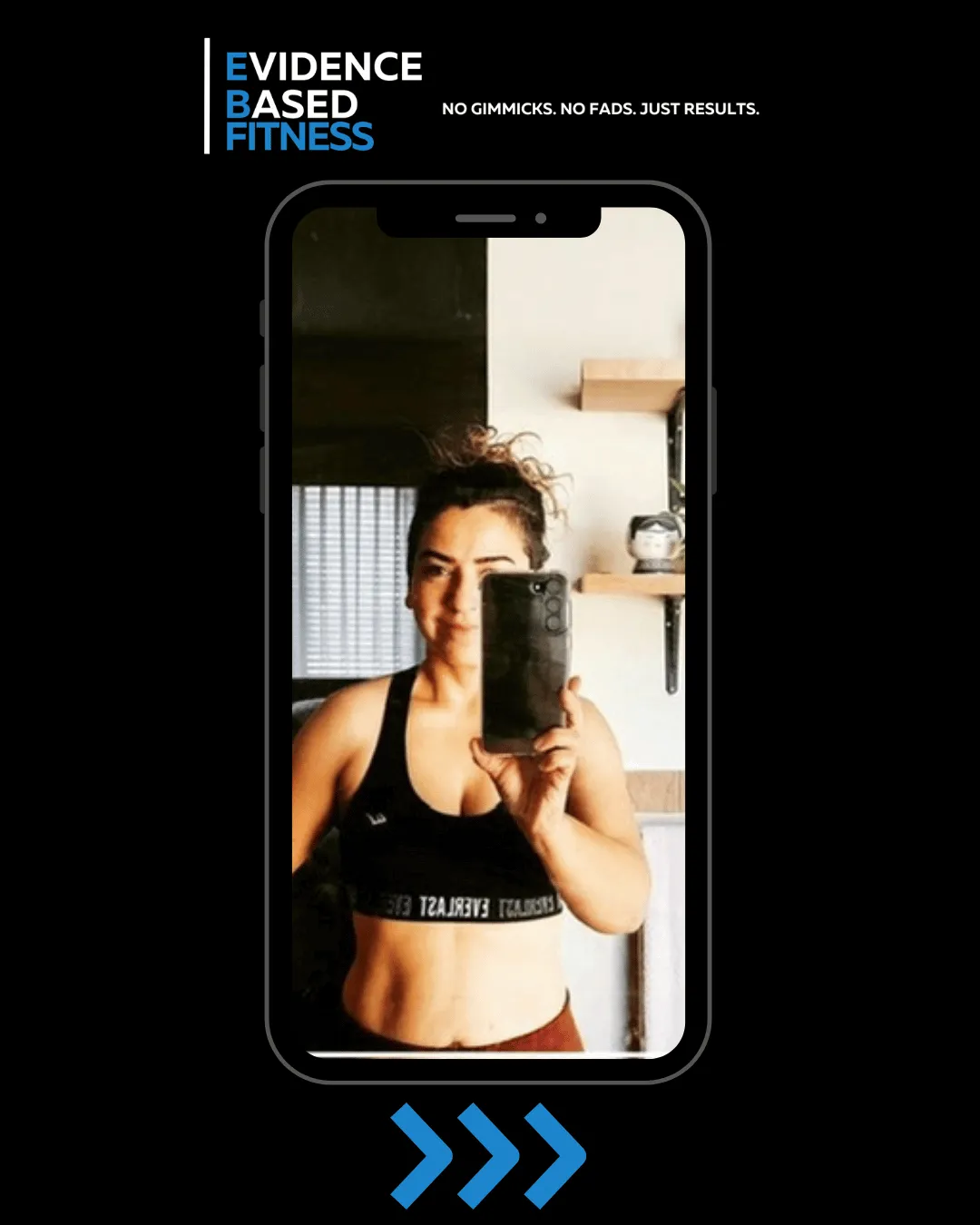
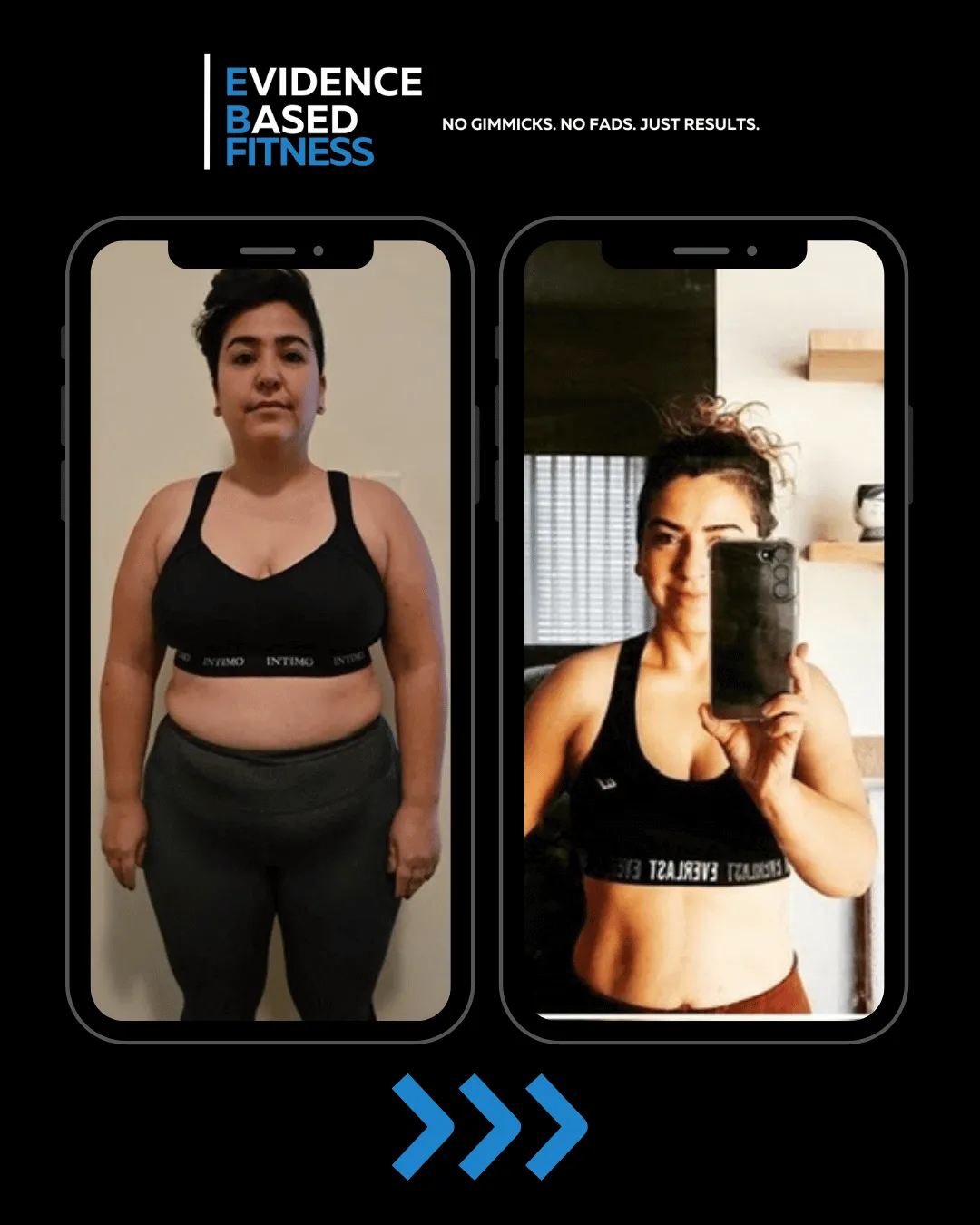

"I'm a lot happier and more confident looking in the mirror. I noticed especially through looking at all the progress photos which I'm still taking now that I'm off the program, that my stomach is flat and I'm starting to see some baby abs coming through! I definitely recommend the program to my friends if they're trying to get back on track. Elliot's knowledge, passion and commitment for what he does is incredible!"
Kim


"Elliot is a highly professional and passionate coach, with the skills and resources to back him! From the learning content, apps, check in’s, personalised goal setting, nutrition and workout plans he really has covered it all. Elliot was able to make goals that seemed impossible in the past, finally achievable."
Clare


I made a lot of progress in understanding the types of exercises I should be doing as well as the macro targets I should aim for every day. I lost 5cm off my waist in 3 weeks which was much more than I expected!!"
Steph

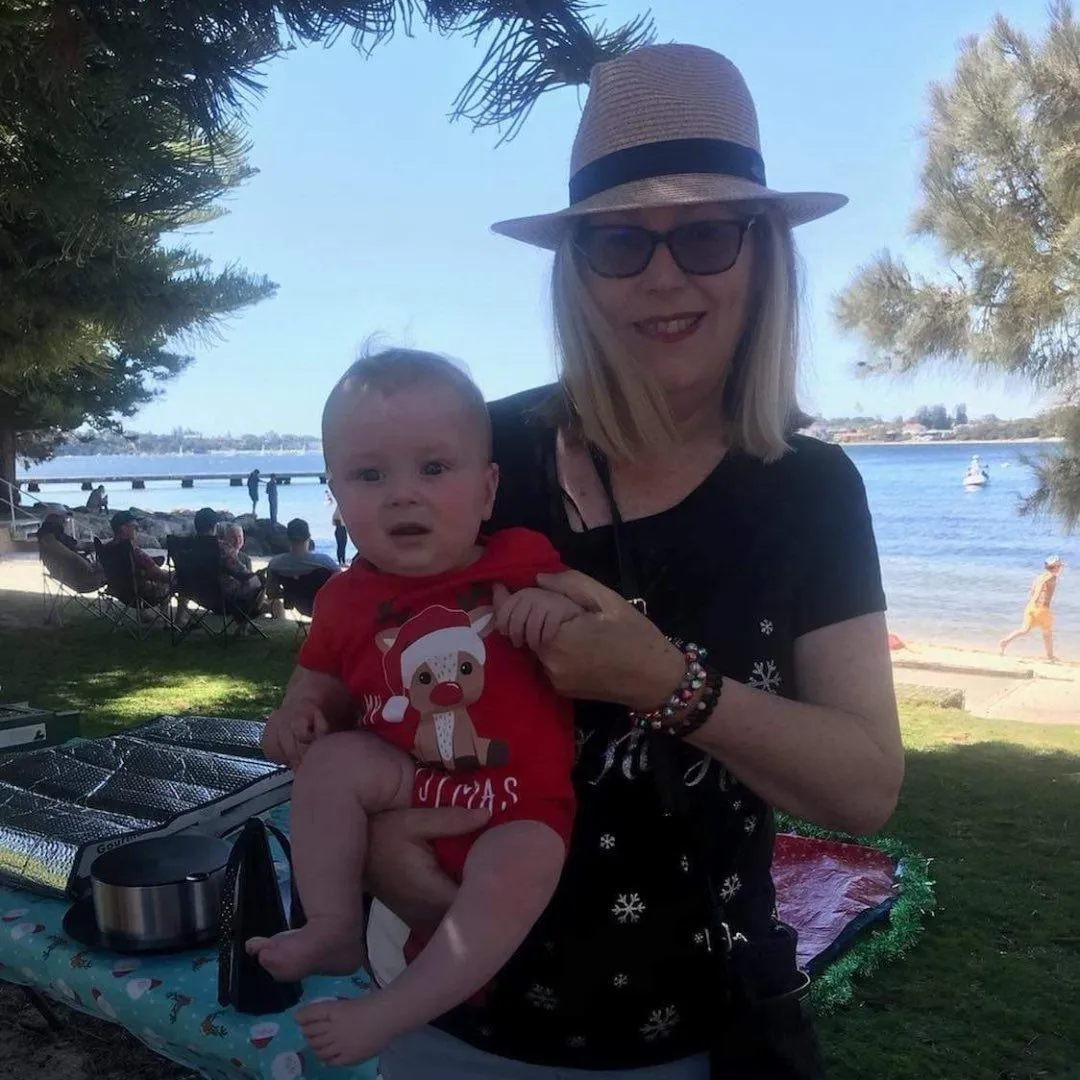
Initially, I just wanted to lose weight, that was the biggest thing for me. But when speaking with Elliot I realised I wanted to also to change my mentality and become excited again to exercise.
Deb

“I was motivated to start working with Elliot becasue I wanted to lose weight, feel more comfortable in my own skin and get a better understanding on how to eat around PCOS. I lost 6kg working with Elliot!
Nele

"Biggest change for me is my confidence. Worth every minute. Would highly recommend this to anyone who does want to make a change and needs a helping hand to get there."
Josh

"I'm down 13.2kgs! The biggest change for me, mindset. Elliot really helped change the way I think about progress and how to look at the changes I have achieved."
Jakob

"Elliot was amazing to work with and was always extremely encouraging and supportive of not only my fitness journey but he also focused on my overall mindset which was really great! He was super attentive and checked in very regularly which helped me to stay on track. I would highly recommend the program as a great way to kick start your fitness and to learn how you should be taking care of your body and your mind!"
Tiah

"A key takeaway for me was that the number on the scale isn't all that matters, and as long as you overall stick to your program some cheat days are fine :)
Brodie

I always had lower back issues. So, the warm-ups in a way that targeted specific areas and muscles have helped that massively! No back pain has been a big motivator for me to keep progressing."
Ryan

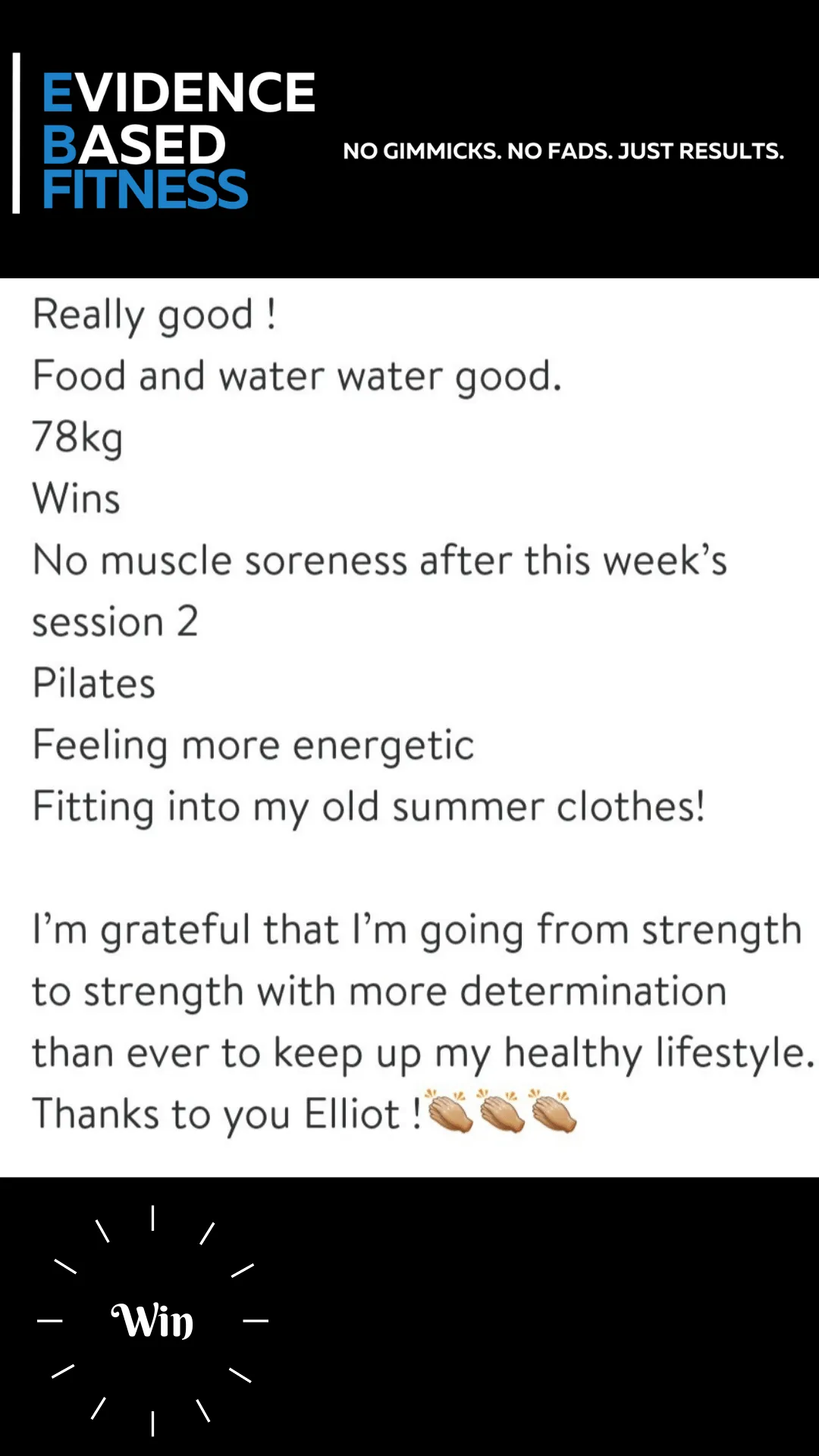
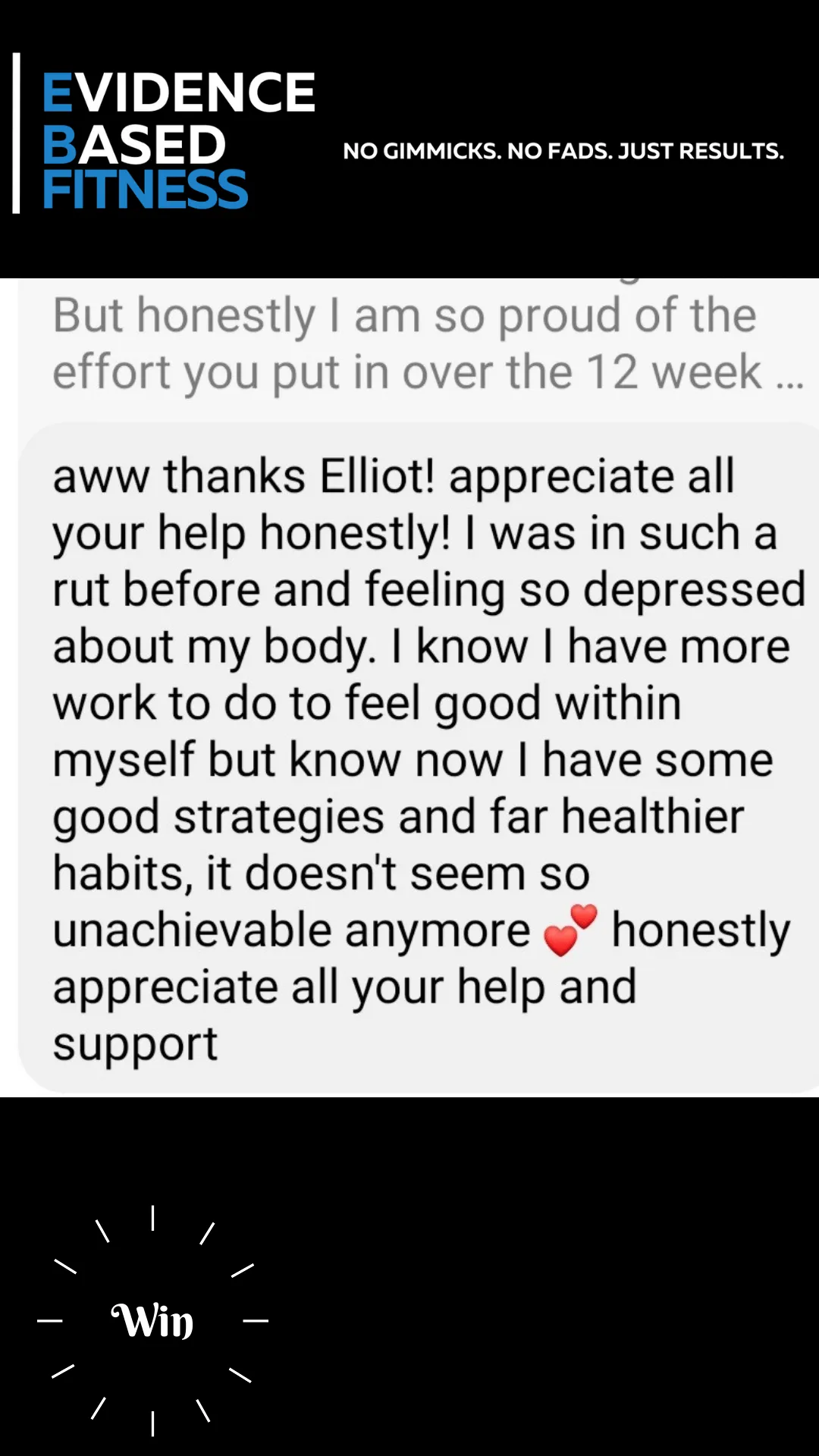
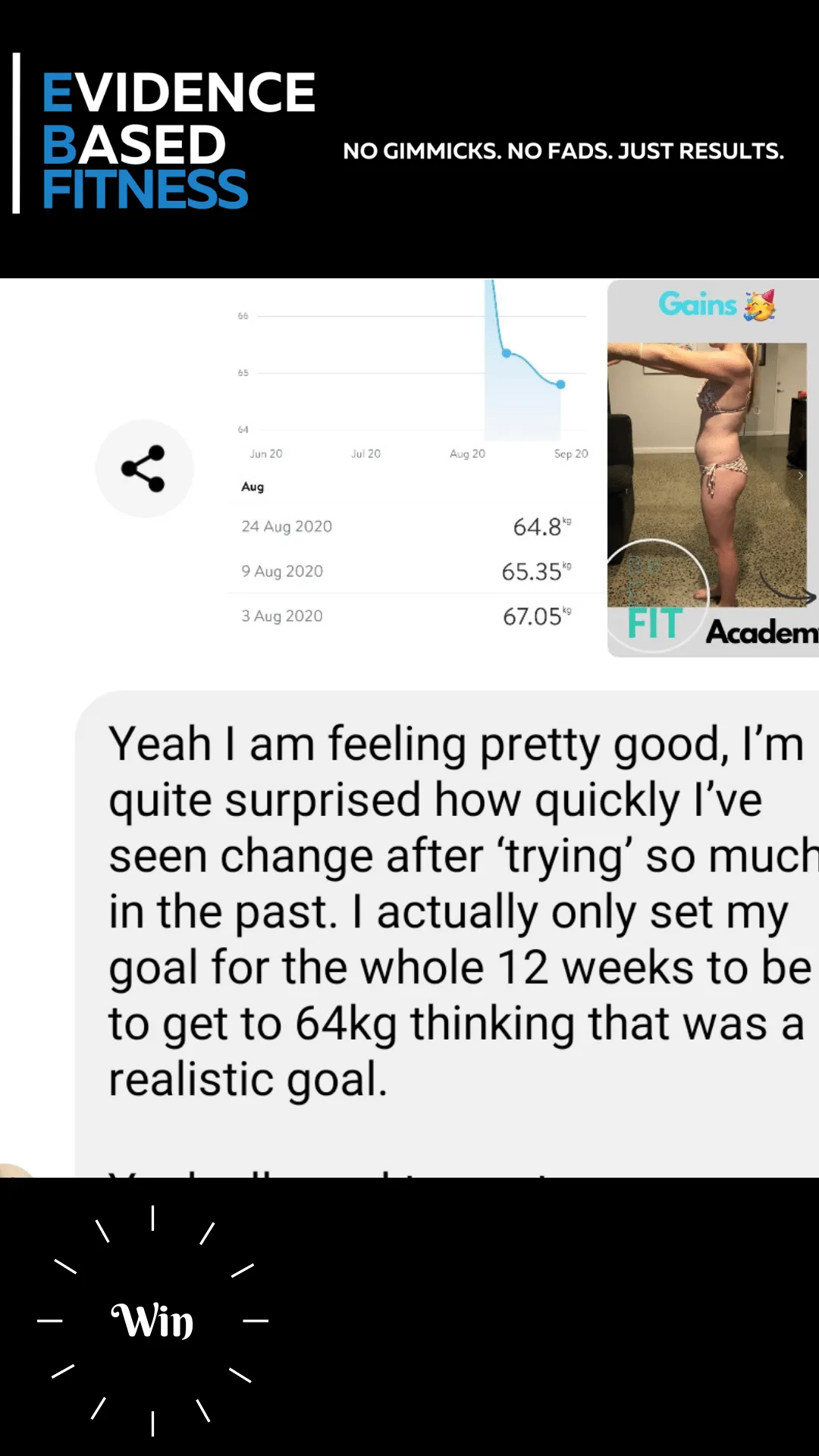
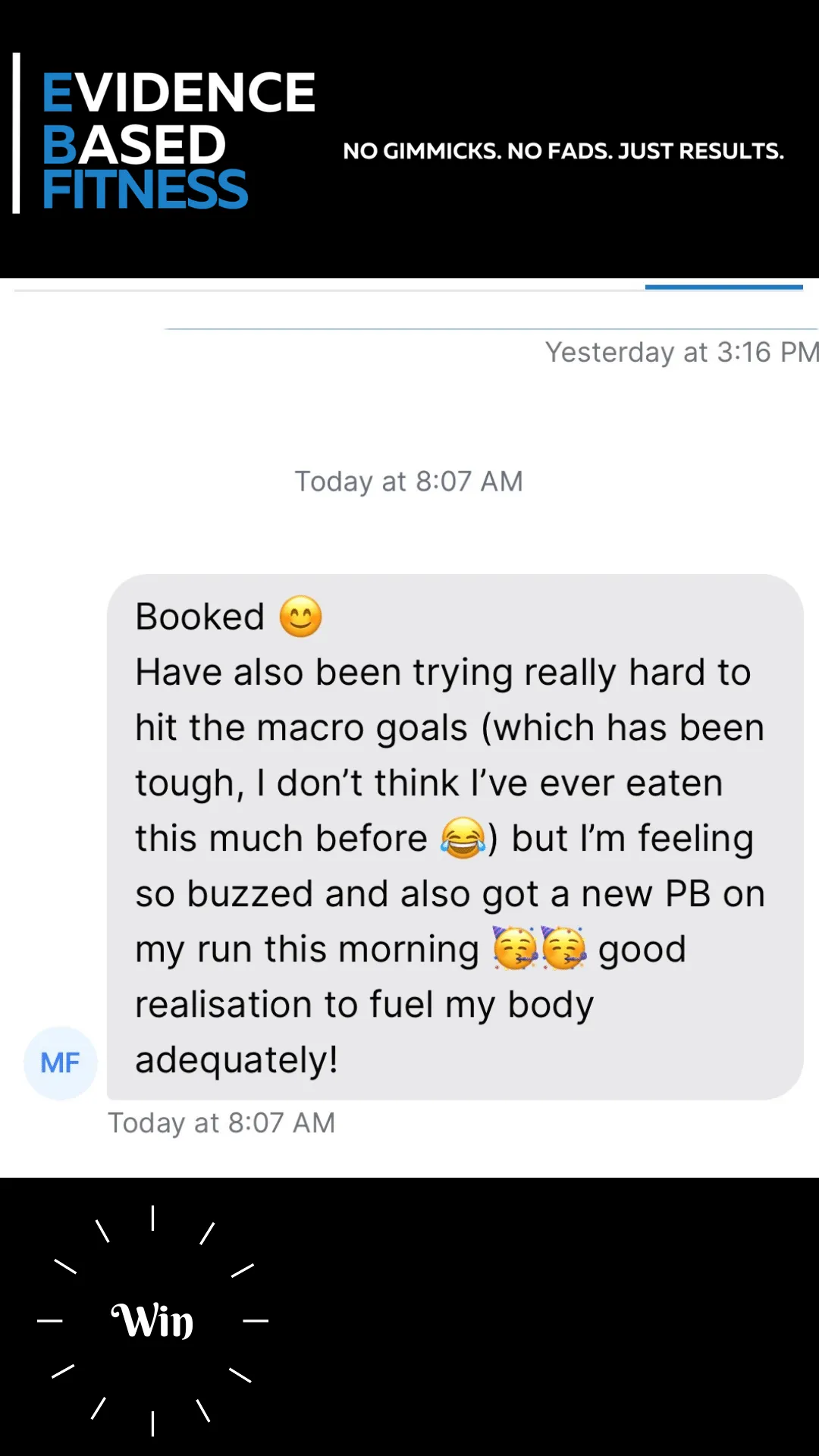


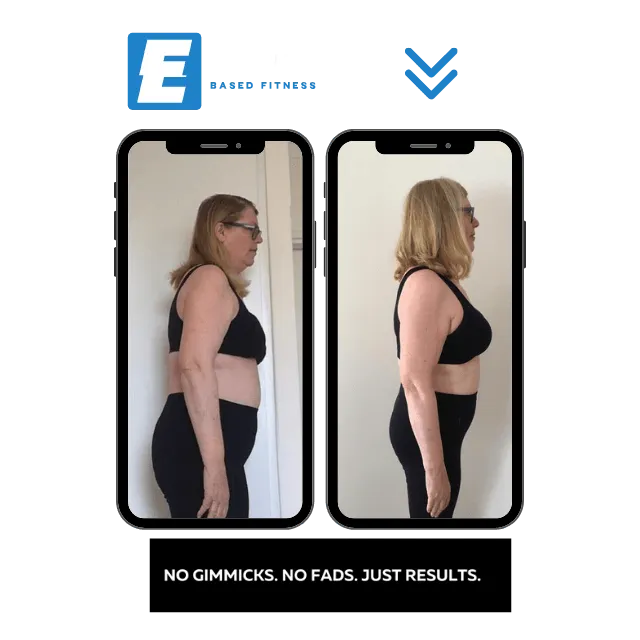
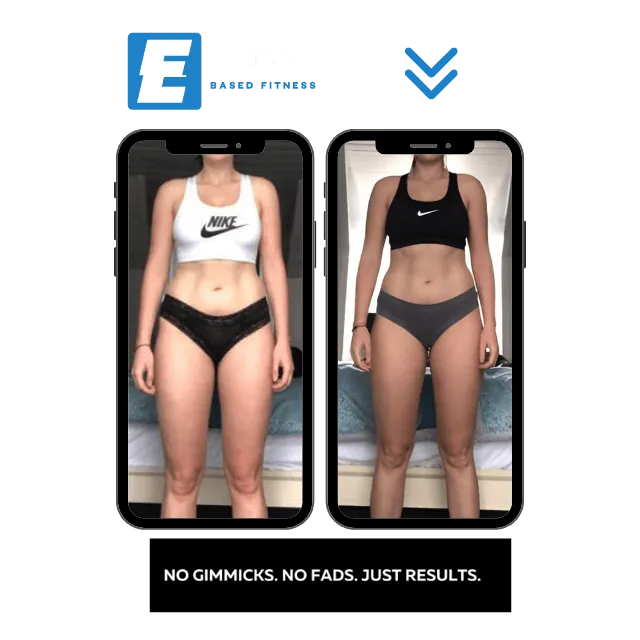
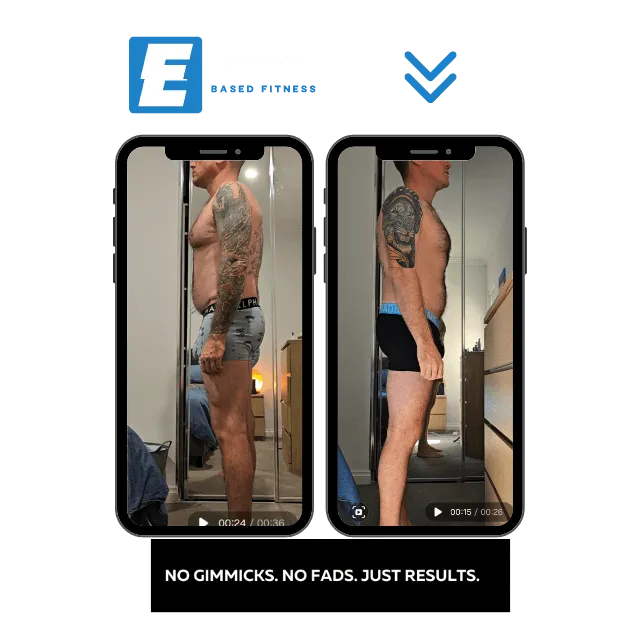


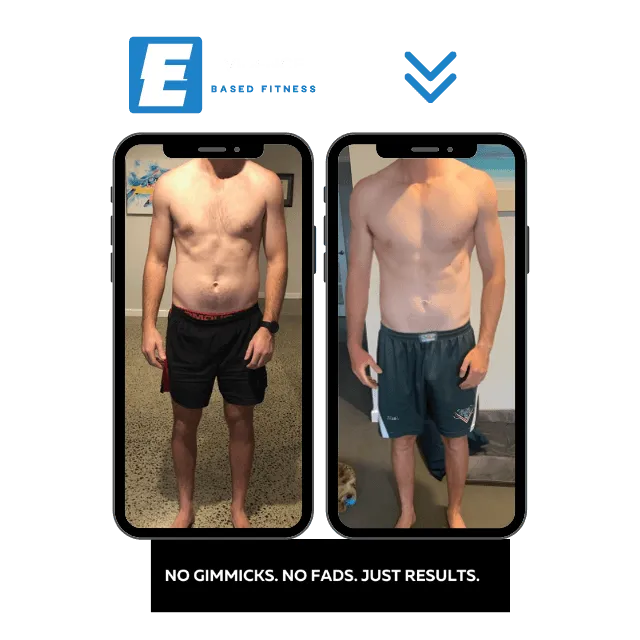
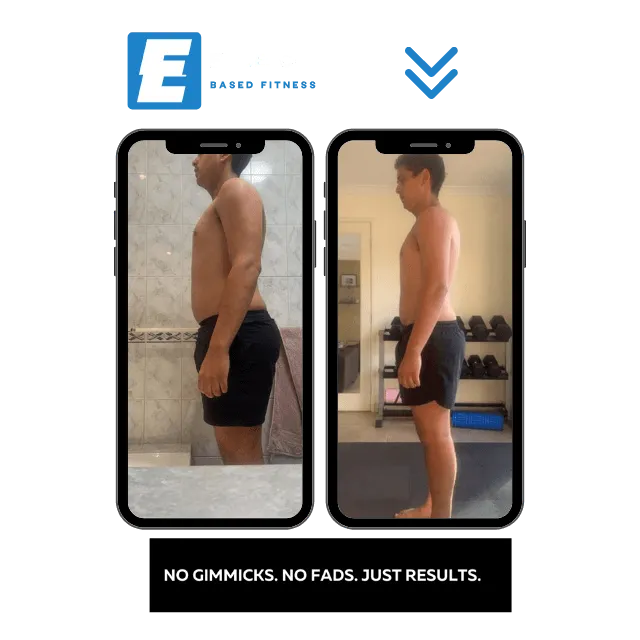
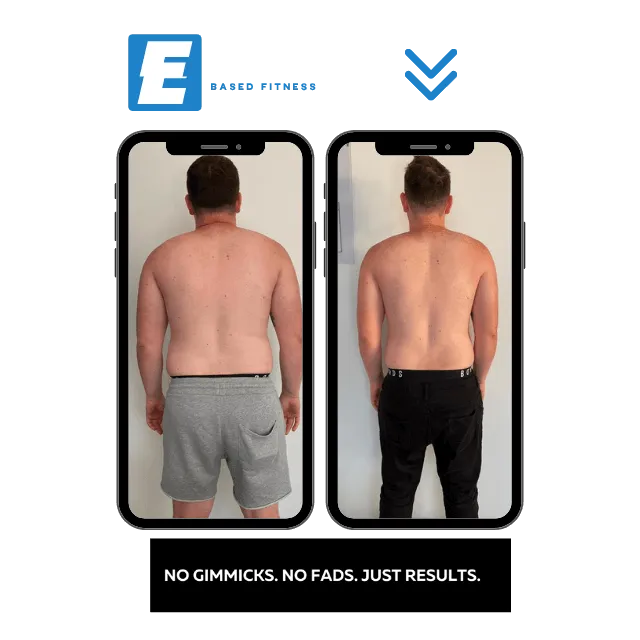
Call 0406502694
Email: elliotharris@ebfitness.com.au
Site: www.ebfitness.com.au
